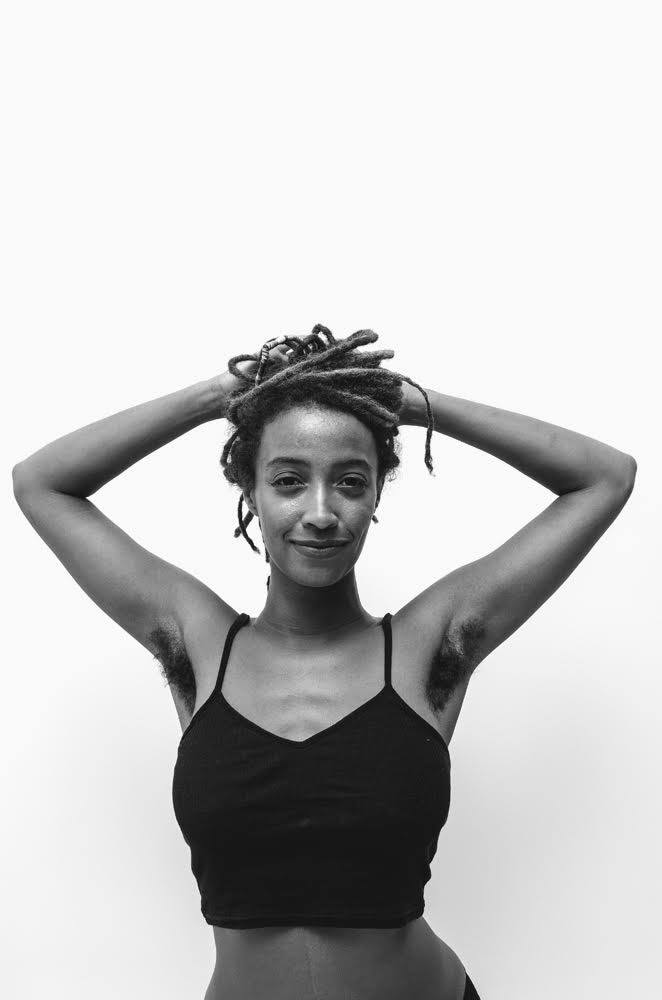
A small but revolutionary movement is spreading on Instagram. #FlowersOfChange is a photo series that was started by Amber Amour, an activist and artist who, prior to Flowers of Change, began the artistic campaign Stop Rape, Educate. The #FlowersOfChange series was born in conjunction with #StopRapeEducate and has been gaining ground on social media among women who feel comfortable posting photos of themselves that show their body hair. They are explaining their choice to refrain from shaving and how their body hair “speaks” to them and to the world.

Amour, in various Instagram posts where her body hair shows, describes her choice to shave or not to shave has absolutely nothing to do with anyone else’s perception of her body. She describes the choice as a form of self-love. “No one can take this sunshine away from me,” she wrote under one of these posts (instagram.com/ambertheactivist).
Equating flowers with women’s body hair breaks down the perception that body hair is equated with masculinity. There is a common societal perception that men with more body hair are more masculine, and men with less or very little body hair are effeminate; women with body hair are perceived as masculine, butch, hippies, etc. Labels are inherently associated with the amount of body hair one has naturally or by choice.
This is not to say that all women who shave are complicit in their own oppression in the context of patriarchal heteronormativity. Both women and men choose to remove their body hair for various reasons, including comfort, sport, athletic affiliation, personal or partner preference, aesthetic, and so on. Unfortunately, labels such as the examples given above are often implicitly associated with appearance.
To gain deeper insight into #FlowersOfChange, I reached out to Amber Amour with a few questions about the photo series.
RH: What inspired you to start the series #FlowersOfChange?
AA: It’s an interesting story, actually. I started #FlowersOfChange after being sexually assaulted in Cape Town. When the story went viral, I got victim-blaming comments from men and women around the world. One girl commented on my picture saying something like, “You put yourself in that situation [to be sexually assaulted]. You should have known better. Life is not all flowers and armpit hair!” Despite her rudeness, that comment made me laugh and I found the concept of “flowers and armpit hair” terribly cute. I decided to kick-off the campaign by taking photos flaunting my body hair while posing next to flowers. I later renamed the movement Flowers of Change because if we all change what we think about body hair, we can change the world by revolutionizing the love we have for our bodies.
RH: What societal implications/effects are present for women who choose not to shave?
AA: Women who let [their hair] grow should be prepared to face staring and funny looks from strangers and rude comments from peers. It’s not all bad, though. Eventually that will roll off. Whoever decides to rock their body hair should do it for herself despite what anyone says. Women who let their body hair grow should know that not everyone is going to understand. Don’t let their ignorance dictate what you do or how you feel.

RH: What is the response like on Instagram?
AA: The response is mixed. For one, I noticed that my photos showing my body hair got more likes than any of my other pictures, which was a sign that people were paying attention to it, at least. Some of the comments can be harsh but I’ve learned to ignore them because I feel so grounded with myself and so complete with my body hair that nothing anyone can say would make me feel ashamed of it. You can’t make me feel bad about something I’m incredibly proud of.
RH: In what ways does #FlowersOfChange relate to your campaign, #StopRapeEducate?
AA: They relate to each other in the way that both movements allow women to grow, to love, and to express themselves freely without fear. When women feel supported, loved, and healed from within, the whole world prospers.
RH: Do you feel social media is the most effective platform to inspire social change, or is social media part of a broader movement?
AA: Social media is a part of a broader movement. It’s just one aspect of things. We can preach all day behind our screens but if action is never taken, the world never changes. We should use social media to speak our minds and educate people just as much we should take steps toward building the world we dream of outside of the virtual world.





